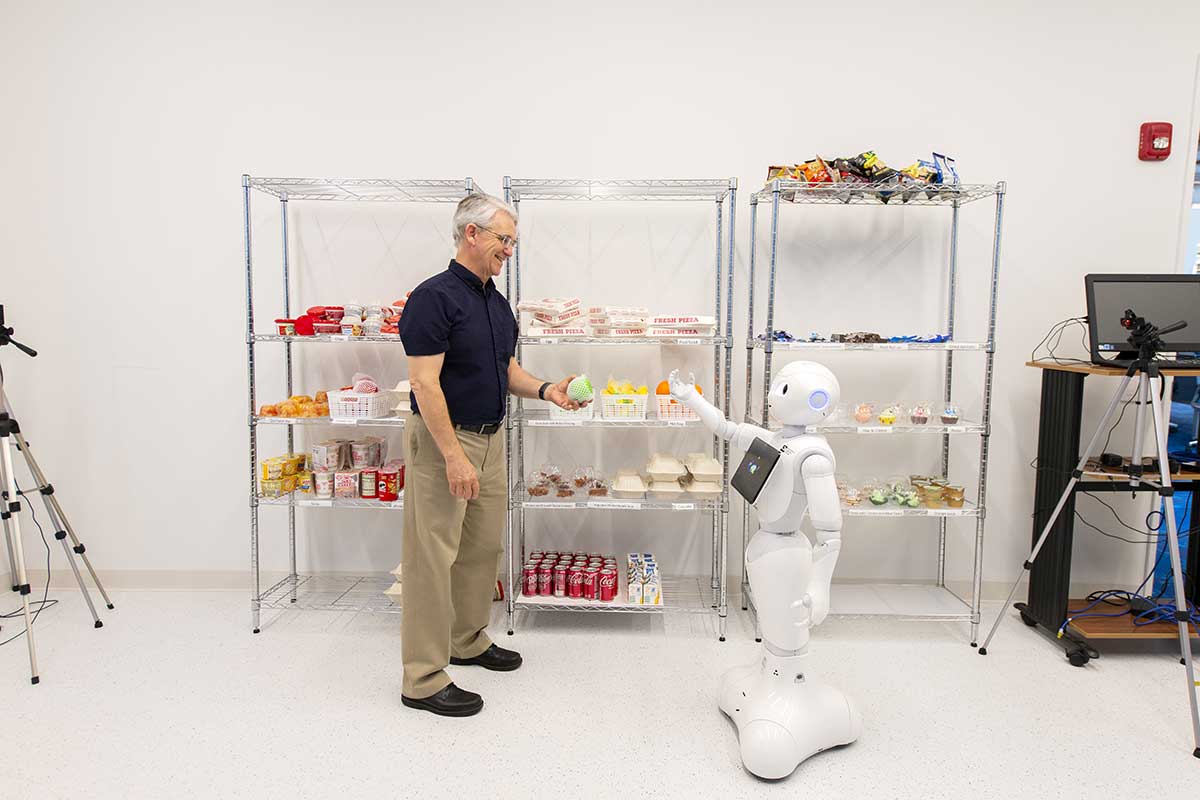
Research Impacts at Khoury College
Improving everyday life in ever-growing ways
Research is fundamental to Khoury College’s mission, and as the college continues to expand throughout Northeastern’s global network, so do the depth, scope, and scale of our research. The impact of that research is expanding too, courtesy of an ever-growing range of passions and projects from our faculty and student researchers.
AI researchers are devising new ways of incorporating AI into daily life and holding harmful AI applications accountable. Cybersecurity researchers are testing and strengthening our digital tools and spaces to make them safer. Theory researchers are optimizing algorithms to streamline the foundations of computing systems. And researchers in all fields are collaborating with communities near and far to broaden access to the fruits of computing research.
Critical research for people with autism and their caregivers
Alison Singer, the mother of a child with profound autism, discusses how Khoury researcher Matthew Goodwin’s work in developing AI for predicting behaviors in people on the autism spectrum is a game-changer for families like hers: “It really has huge potential to improve the lives of people with profound autism.”
A sampling of projects and publications from Khoury College’s faculty and student researchers — and the benefits they entail for users and communities
Inside the new tool poised to speed up your web browsing
By selectively loading only the webpage elements that users need, browsers run more efficiently. Now that process, called “lazy loading,” is getting a boost thanks to some new Khoury research.
Maciej Kos saw his two grandmothers battle dementia. He believes phone data can help find it early.
By parsing the data we generate as we use our smartphones, Khoury researcher Maciej Kos can pinpoint and analyze subtle changes in cognitive function — with huge implications for detecting dementia.
Slow-motion replay is a cornerstone of sports viewing. Now, AI is poised to revolutionize it.
For Huaizu Jiang and Jiaben Chen, AI could hold the key to smoother, higher-quality, and more immersive slow-motion replay, with applications for everything from network sports broadcasts to everyday videos.
Inside the app that’s bridging faith and mental health in Boston’s Black communities
Aiming to address depression and its accompanying stigma in Boston’s Black church communities, Teresa O’Leary helped build an app-based intervention tailored to their needs. Now, doctorate in hand, she’s continuing her “techno-spiritual work.”
Signal jamming defense not up to the task? These researchers have a solution.
High-powered signal jammers are a powerful weapon for attackers bent on compromising data. But two Khoury researchers say they’ve found a novel method of canceling these jammers — even in situations where traditional techniques fail.
Android browsers threaten user privacy, says Khoury-led international research team
After examining the largest-ever dataset of Android browsers, a team led by doctoral student Amogh Pradeep found that many apps jeopardized users’ privacy — even the ones that claimed to boost it.
Connect+
The Connect+ project explores how technology can be used to help students connect with others, combatting what has been called a global epidemic of loneliness.